The 3 R’s: Redefining Conflict
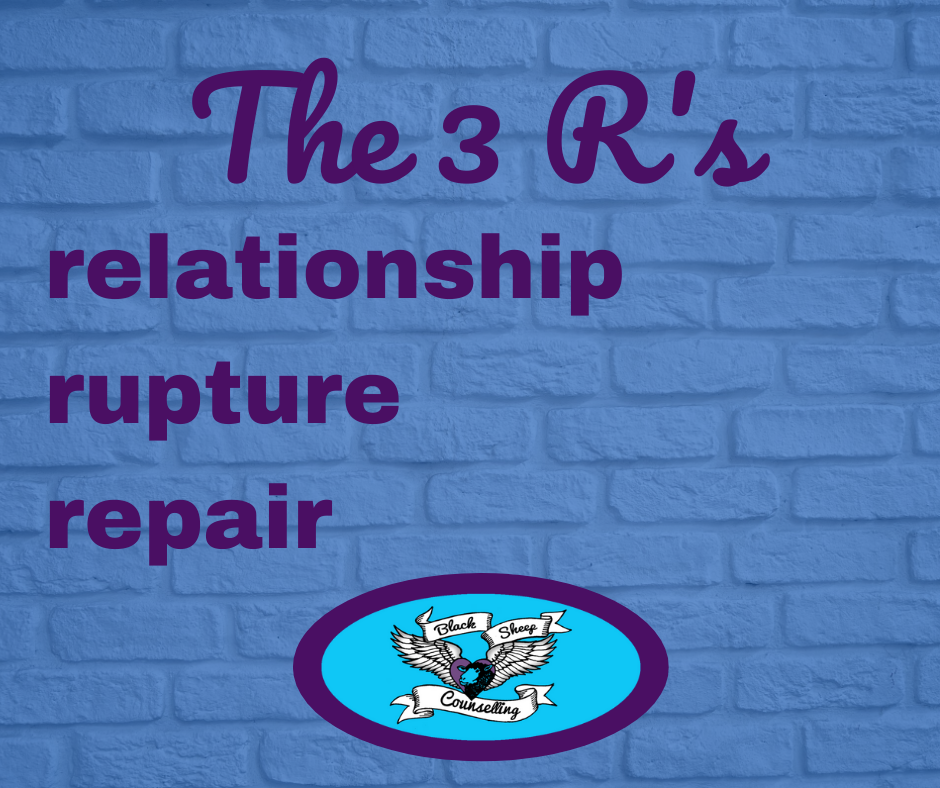
Do you avoid conflict like the plague? Many people fear conflict because they believe it will lead to loss of connection, intimacy, or trust. Interestingly, the avoidance of conflict often manifests those very fears.
“Good conflict” fosters intimacy. Good conflict is how two or more people coexist in a healthy relationship with one another. Most of us have had some adverse experiences with conflict. Maybe you witnessed conflict erupt into full blown rage in your family of origin. Or maybe the avoidance of conflict was so severe that it caused familial emotional cut-offs*.
“If you avoid conflict to keep the peace, you start a war inside yourself.”
(Cheryl Richardson)
What is a Rupture?
A rupture is a break in the connection between two or more people. Ruptures are an expected part of every relationship we have. Every relationship we have will incur some sort of rupture (even therapeutic ones). Why? Because we can never be fully attuned or understand one another at all times. When misunderstandings and misattunements happen, anger and hurt feelings will often arise.
When a relational rupture occurs, many people may deny their hurt feelings because they don’t want to “rock the boat”, or they “should” on themselves (“I should be fine”). The problem with this is that resentments mount. I believe that resentment is a tool we can use proactively: rather that stew in our negative feelings (essentially giving our power over), we can choose to show up differently: authentic, well-boundaried, empowered.
If the relationship is an important one, we need to engage in a relational repair to keep the relationship healthy and secure.
Tools for Relational Repair:
Usually what alerts us to a rupture is feeling angry. Anger is (most) often a secondary emotion; it is an intense reaction to an unmet need. Ask yourself, what unmet need might my anger be telling me? Am I needing to feel heard? Do I feel invalidated? What happened or didn’t happen with this person that caused my feelings to be hurt? Once we identify what is underneath the anger, we can be transparent with the other and use effective communication skills (such as “I” statements) to let the other person know what is going on for us. Rather than “You hurt me” which denotes intention on the other person’s part and usually incites defensiveness, we can state, “I felt hurt when you did/said ____________”.
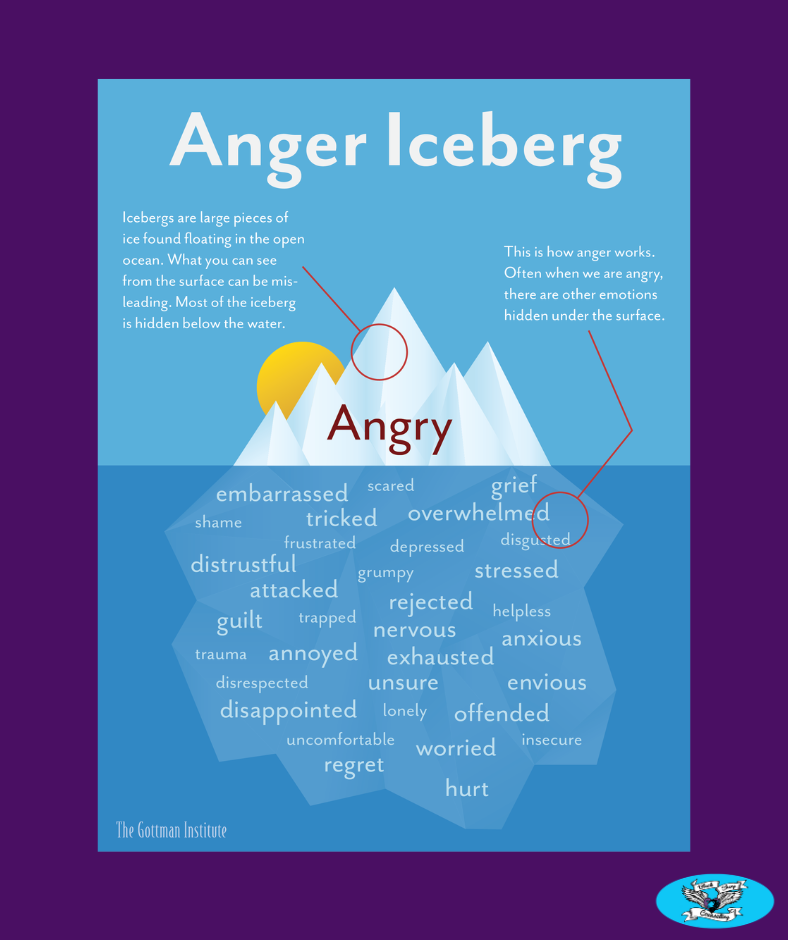
Active Listening Techniques
When someone we are in relationship with lets us know they are hurt or upset, our job is to listen to understand them (not listening to respond). Assume a listening posture and engage in nonverbal cues to demonstrate understanding such as nodding, eye contact and leaning forward. Try paraphrasing to show understanding. If the other person lets you know that your attempt at paraphrasing got it wrong, ask the speaker to focus on conveying to you what they are feeling. Model the type of listening skills you want from the other person when it is your turn to talk.
Validation: It’s Not About Giving In
Validating another’s experience is crucial to an effective relational repair. Validating is not about giving in, compromising your position, manipulation, or consenting to agree to keep the peace. Validation is about indicating to the other person that you understand what they are feeling (you might very well feel differently than them, but we cannot deny someone their internal experience).
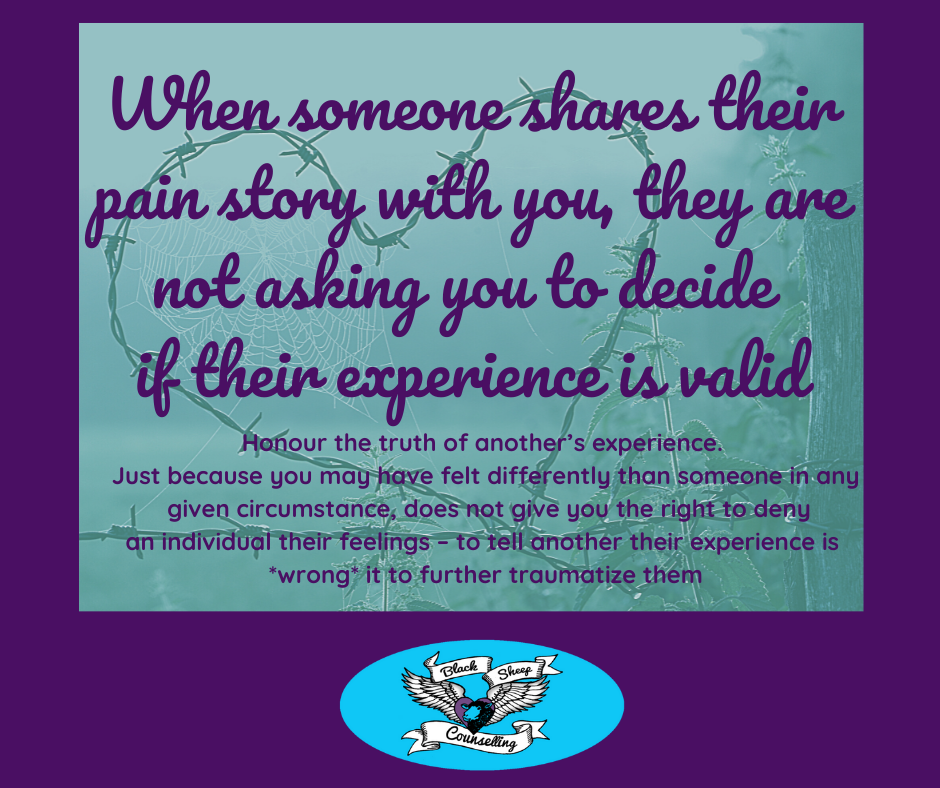
Practice empathy. What individuals find upsetting can greatly differ, but it doesn’t make one person’s experiences less or more important than another’s. Pain is pain. If the other person can articulate their uncomfortable emotion to you (be it hurt, invalidation, exclusion, et cetera), try to connect with how that very emotion feels to you in your own body. Try not to dismiss another’s current pain simply because you yourself have not experienced it, or you have successfully moved through something similar. Convey to the other person that you understand what emotion they are feeling (example: “what I’m hearing you say is you felt dismissed when I did _______”).
Take accountability. We are human and we all mess up. Perfection in ourselves and others is an unrealistic goal and sets us up to be miserable. When we own our stuff, it fosters emotional safety and deepens trust and intimacy in a relationship. We humans thrive in relationship to one another so this is stuff worth getting comfortable with!
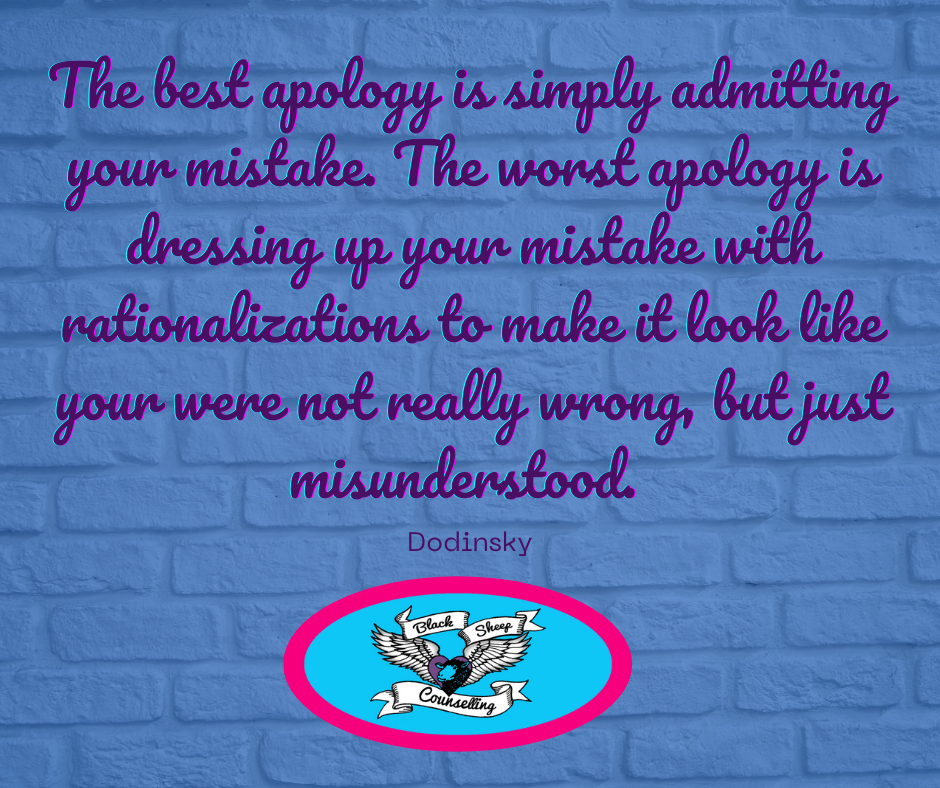
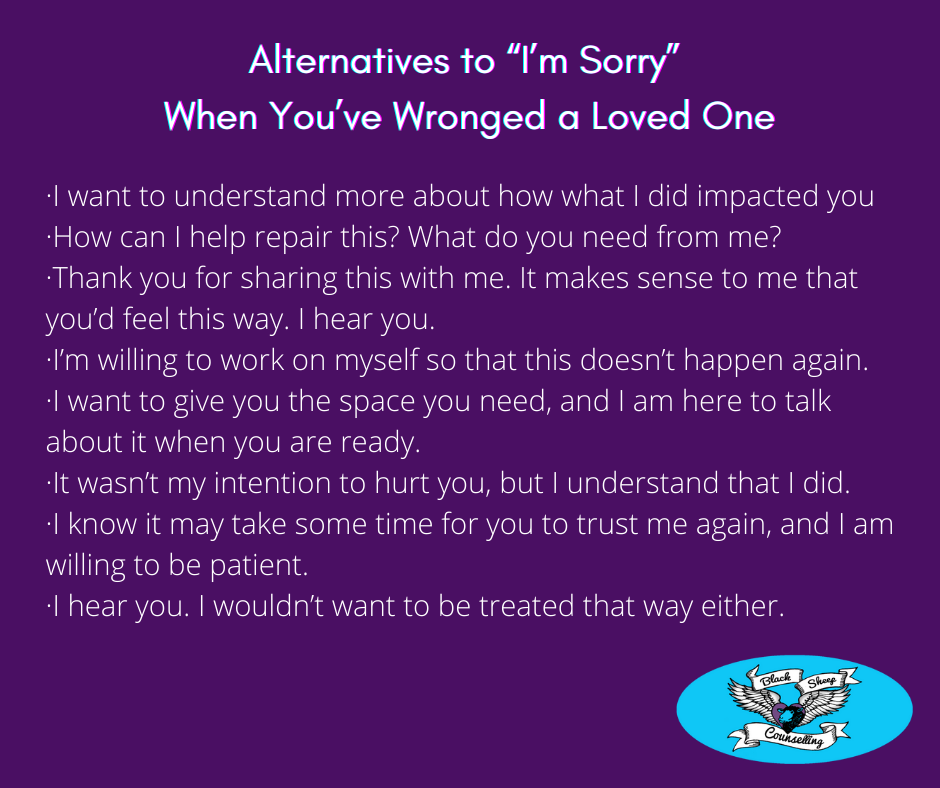
If you struggle with empathy, taking accountability for wrongdoing, or validating others, you may have experienced adverse experiences in childhood. Working with a mental health practitioner who specializes in complex post-traumatic stress disorder (C-PTSD), developmental trauma, and childhood emotional neglect (CEN) can assist in healing from relational trauma and foster the needed skills for healthier relationships such as transparency and learning to assert healthy boundaries. I encourage my clients to let me know when I have misunderstood something, when they disagree with something I have said or done, or when they simply do not feel connected with me. The therapeutic relationship is often the first time many clients have experienced a successful relational repair ~ this experience is paramount to maintaining the health of important relationships with friends, family, or in the workplace.

Emotional Cuttoff: When a relationship between two people or groups is fraught with difficulties, one party may decide to cut off emotional contact with the other in an attempt to ease the tension. Though this may bring some short-term relief, cutting a person or group off emotionally may cause more stress in the long term because it leaves the underlying problems unresolved.
